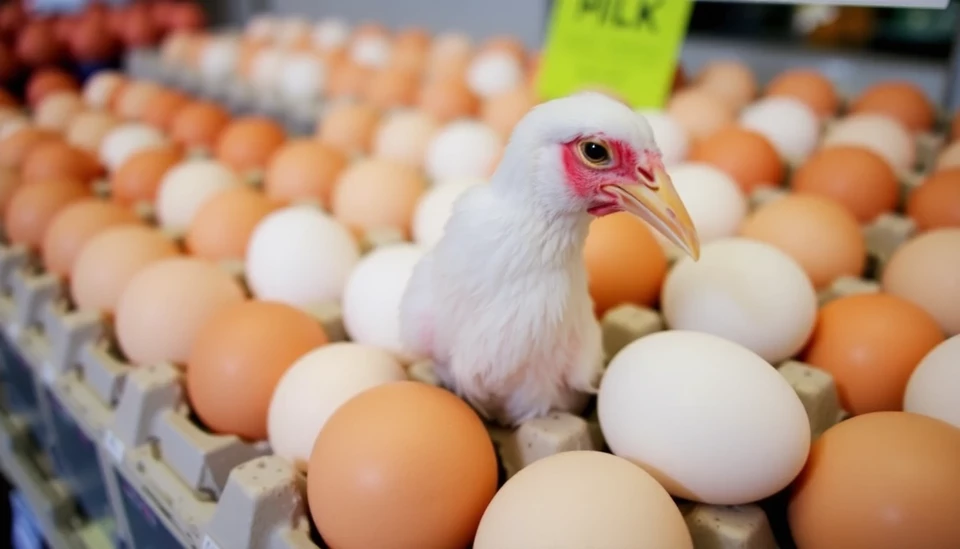
As egg prices have soared in recent months, consumers are seeking alternatives, leading to a noticeable uptick in the demand for plant-based options like Just Egg. The inflation in egg prices has become a significant issue, with the U.S. Bureau of Labor Statistics reporting that egg costs have increased dramatically due to a combination of factors, including supply chain disruptions and rising feed costs for poultry.
According to data, mainstream egg prices hit an all-time high, reflecting a worrying trend for many households who rely on eggs as a staple ingredient. This surge has compelled consumers, particularly those who are health-conscious or environmentally aware, to reconsider their options. The vegan market has embraced this shift, with brands like Just Egg witnessing a remarkable boost in sales as they provide convincing substitutes for traditional eggs.
Just Egg, which is made from mung beans, has gained traction among both vegans and non-vegans alike. Its texture and flavor closely mimic that of real eggs, allowing consumers to enjoy their favorite dishes without compromising on taste. The changing market dynamics are evident; many consumers are proactively exploring plant-based products, moving away from animal products, partly driven by rising prices as well as ethical considerations.
Food industry analysts suggest that this trend may persist beyond the current spike in egg prices. As consumers increasingly recognize the benefits of vegan substitutes—not only in terms of cost but also regarding health and sustainability—the plant-based food sector is on the front lines of a potential consumer revolution. Brands like Just Egg are likely to become formidable players within grocery stores, competing directly with traditional egg suppliers.
In addition to the economic pressures, there has also been a significant shift in consumer attitudes towards plant-based diets. Health concerns related to cholesterol and the environmental impact of animal agriculture are driving more people to explore and adopt vegan diets. The vibes of this transformative dietary shift are likely to extend further, influencing future trends in food production and consumption.
As the food industry adapts to this new normal, companies producing plant-based alternatives are ramping up production to meet the expanding demand. Retailers across the U.S. are beginning to stock more diverse options, supporting a wider range of consumers who are actively seeking out non-animal products. Brands are also innovating their offerings, aiming to improve taste and expand product lines to cater to the evolving preferences of their customers.
Ultimately, the surging egg prices serve as a catalyst for change, encouraging consumers to rethink their dietary choices and propelling the growth of the vegan food sector. As more individuals shift towards plant-based diets, it is evident that the food landscape is being reshaped, with Just Egg and its peers leading the charge against traditional animal-based products.
In conclusion, the current spike in egg prices is not merely a temporary economic anomaly. Instead, it signifies a pivotal moment in consumer behavior and the vegan food industry. As consumers continue to prioritize health, sustainability, and affordability, the shift towards vegan alternatives appears to be more than just a trend; it could potentially redefine dietary habits for years to come.
#EggPrices #VeganAlternatives #JustEgg #PlantBasedDiet #FoodTrends #Sustainability #ConsumerBehavior #HealthAndWellness #VeganRevolution
Author: John Harris




